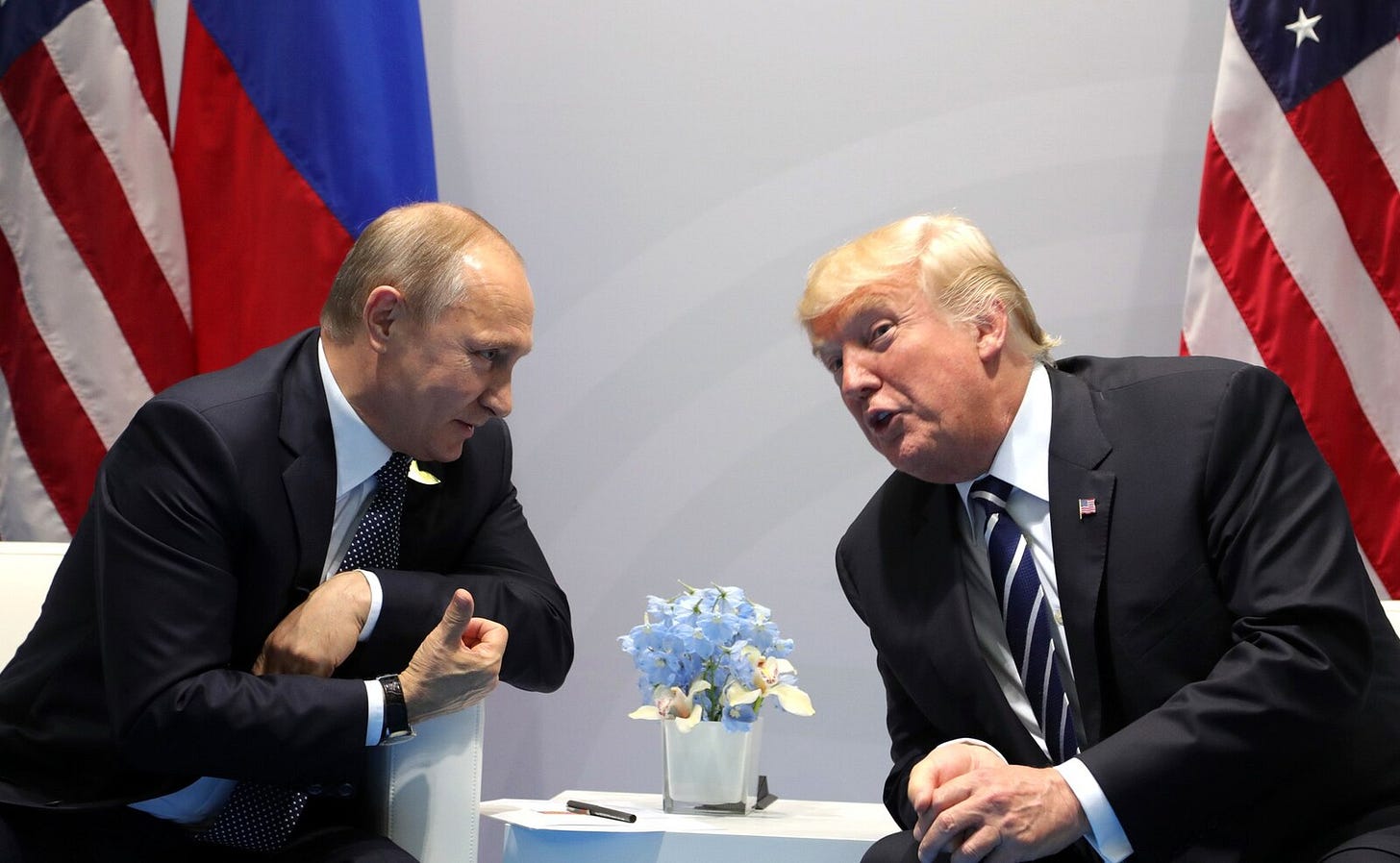Later today, at 11:30 a.m. Anchorage time (7:30 p.m. GMT), Donald Trump and Vladimir Putin are scheduled to meet at one of the most heavily guarded military bases in the United States. In one motorcade will be Putin, the sitting Russian president and internationally recognized war criminal. In the other will be Trump, the …
Keep reading with a 7-day free trial
Subscribe to The Crustian Daily to keep reading this post and get 7 days of free access to the full post archives.



